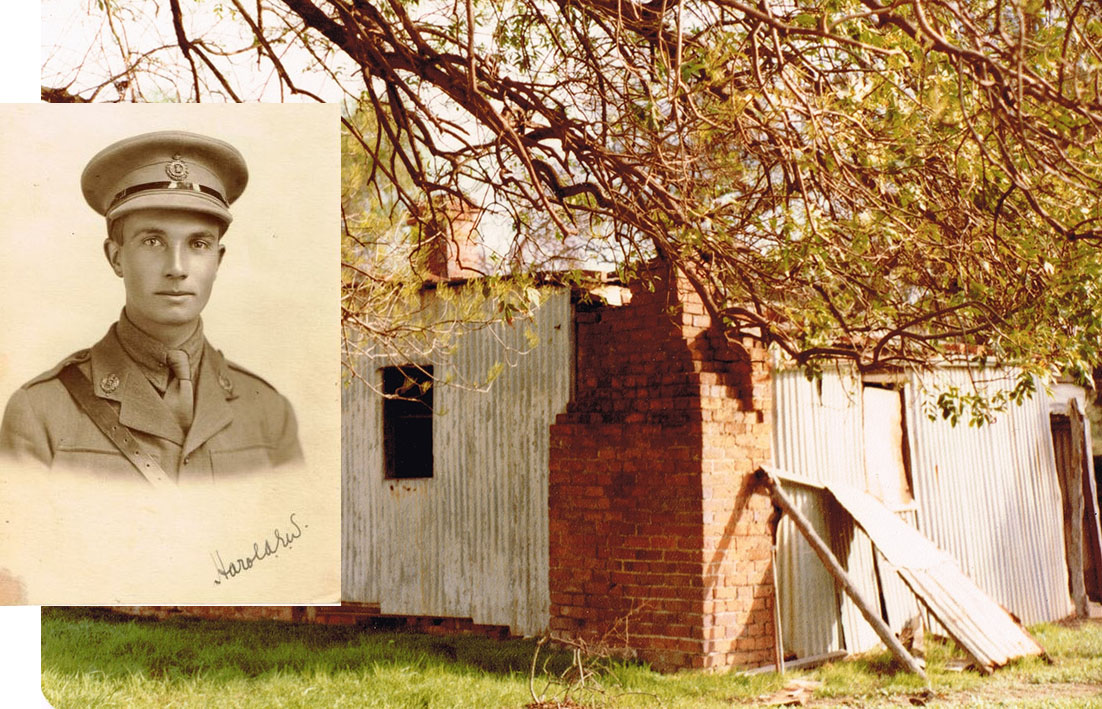
BEFORE Harold Ernest Whiteman, who grew up in Middle Swan, became a serviceman in World War I he had planned to become a barrister.
Sadly Harold Whiteman – a first cousin of Lew Whiteman the developer of the Mussel Pool picnic area that was the forerunner of Whiteman Park – was killed on his first solo flight.
He wasn’t from a wealthy family but was talented and after attending Middle Swan state school he went to Guildford Grammar, the University of Western Australia and won a scholarship to Oxford.
His great niece Cheryl Rogers of West Swan has been writing the history of the Whiteman family.
“Harold died at 7.21am on Monday, October 23, 1916,’’ she said.
“His regular letters home suddenly stop and the letters of condolence start.
“From a family point of view, this is still a poignant reminder of what so many families lost in the Great War - John Mountjoy, Doug Barrett Lennard, Harry Elms, Joseph Minchin, Thomas Barlow and Norman Wilson - just a few from the Swan district who didn’t return home.
“Many of those who did survive felt the physical and mental effects of war throughout their lives.
“Harold’s death had a huge impact on his immediate family and on the Swan community where, at a party to wish him well in 1915 he had pledged that if spared by the war he intended to become a barrister.’’
She said the humble house where Ernest and Hannah Whiteman raised their six surviving children was north of Bishop Road, Middle Swan, east of where Jack Mann Oval is now, and was part of a settlement of three Whiteman houses at Janebrook-by-the-Line where Harold’s father Ernest and his uncle, Louis, were pioneer brickmakers from the 1890s.
Copies of some of Harold’s letters, written in 1915-1916, the last year of his life, remain with the family and in public archives.
In March 1916, Harold wrote from the Inns of Court Officer Training Corps in Berkhamsted, Hertfordshire saying he’d spent his 21st birthday marching.
On April 25, 1916 he was gazetted to his commission, his pay increasing from one shilling and tuppence to 10 shillings per day, and moving to the 3/8 Hants Regiment at Parkhurst on the Isle of Wight.
Then on July 10 he wrote that he was back in camp at Nunwell Park, Brading, on the Isle of Wight, doing well in bombing, which he attributed to his time as a fast bowler in cricket.
He was also becoming increasingly aware of the casualties of war on the Western Front.
“Gee whiz, there’s something doing in France now," he wrote.
"You should see the number of hospital ships that pass daily by this coast from France.
“Every day’s paper contains a list of 150 officers and about 1200 men. The Canadians in particular have been getting it in the neck.’’
On September 4 he wrote to say he had been accepted into the Royal Flying Corps and was in the 8th Hants Regiment attached RFC, hence was now both an infantry and aerial officer and that the war would still last some time.
“I must take my part...engines and apparatus are being brought so up to date that I can safely say that flying is the safest job in the army...you will clearly see this from the fact that 750 infantry officers, wounded from the Front and recovered, joined the RFC in August.’’
On October 1, 1916 he wrote about two bad crashes.
“In one case the pilot jumped out 30ft from the ground and was unhurt, though his machine bore no resemblance to an aeroplane; in the other machine and pilot came down in a heap, machine smashed to matchwood and pilot severely mangled, leg and rib broken, head gashed and internal bleeding.
“As soon as I have flown for three hours on my own, I move from here to an advanced squadron. “I don’t know where it will be, but from there I go to France.
“So, if the weather is at all decent I shall be with luck in France by the end of next month.’’
Harold was buried at Bexhill Cemetery, Bexhill-on-Sea, East Sussex, in England, which is near the home of his Whiteman cousins.
The family would visit and tend his grave, and it has also been visited by staff from Exeter College, Oxford, where he had planned to study.
Many of his relations have since made the pilgrimage to visit his grave.